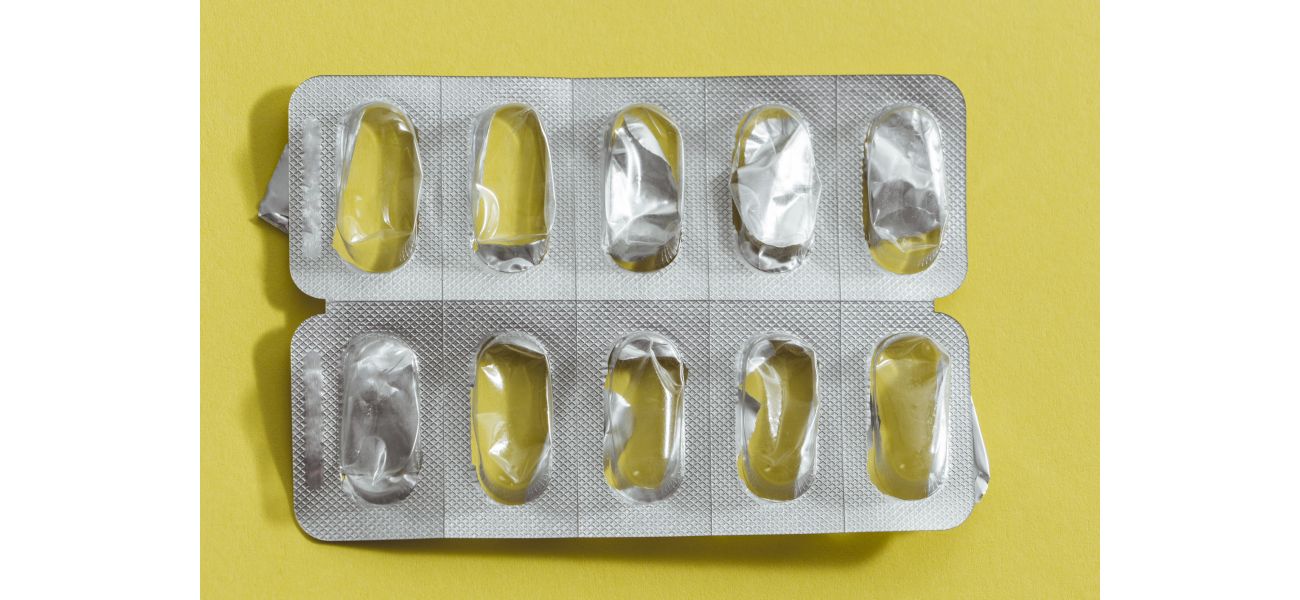Giving painkillers to a builder could result in a prison sentence.
I am realizing the gravity of the situation as I could potentially be held responsible for causing his death by giving him the drugs.
September 24th 2024.

I have recently been contemplating the impact of prescription-sharing on the NHS. Like most people, my morning routine usually involves a shower, brushing my teeth, and applying moisturizer all over my body. To an outsider, I may seem like any other person, but the truth is that my toothpaste and moisturizer are not products I have purchased. They are actually prescribed medications for specific medical conditions. However, these medications were not prescribed for me, but for other people's ailments. I used to be one of the many individuals who shared prescriptions with friends, family, and even neighbors. But that all changed recently.
According to research, I am not alone in this practice. A survey conducted in 2010 estimated that 14% of people in the UK have shared medications, and a more recent study in 2022 by Bristol University estimated that this number has increased to about 50%. I believe that the sudden jump in numbers can be attributed to the Covid-19 pandemic. In 2020, it was difficult to get appointments with our GPs, and many of us resorted to self-diagnosing through the internet. I, too, have been guilty of misusing medications during this time.
I complained to a friend about the hassle of getting a repeat prescription for my steroid nasal spray which I needed for my deviated septum. My friend then gave me three boxes of the spray, which made my life so much easier. This got me curious, and I asked her why she had so many. She explained that her monthly prescription contained six items, but she only needed four of them. The other two were just leftovers from a previous health issue that no one had bothered to remove, so she gave them to me. We both felt like this was the perfect solution, as we didn't want to add any unnecessary workload to the already-stretched NHS.
In addition to this, I also used eczema cream as a body moisturizer, which I got from my elderly neighbor. He had been prescribed it for some flaky skin on his elbows, but he no longer needed it. However, he kept collecting it from the chemist for free, and I was more than happy to use it for my dry legs. I have also shared my own tablets with others. For example, I once gave my husband's surplus penicillin to a friend who had back pain. I have also kept strong painkillers from a previous prescription, just in case I needed them in the future.
But then, I came across an article that stated that prescription-sharing is actually illegal. I was shocked and had no idea that it was breaking the law. According to the Medicines and Healthcare products Regulatory Authority, supplying prescription drugs to people for whom it was not intended is a crime. This realization made me stop and think about the possible consequences of my actions. What if someone had an allergic reaction to the medication I shared? What if it had caused harm or even death? It was a sobering thought, and I immediately decided to stop all prescription-sharing.
It was not an easy decision, as I had to start buying these items instead of getting them for free. It made me realize how expensive these medications actually were. But it was the right thing to do, and I can now sleep peacefully at night knowing that I am not breaking the law. This experience got me thinking about the cost of prescription-sharing to the NHS. How many unwanted prescriptions are being picked up every month, and what impact does it have on the already struggling healthcare system?
The government has acknowledged that 10% of prescribed medications are unnecessary, but nothing has been done to address this issue. This waste not only adds to the financial burden of the NHS but can also have a detrimental effect on patients' health. We have all heard about the shortages of HRT, diabetes medication, and other essential drugs. My own husband is dependent on insulin to survive, and the thought of him not having access to it is terrifying.
I believe that the NHS can take small steps to tackle this problem. Tailoring medications to each patient and conducting three-monthly prescription checks can be a simple yet effective solution. Most patients are too busy to cancel their prescriptions, but if someone made it easier for them, they would probably do it. A simple checklist done by a nurse or pharmacist can help identify unnecessary medications and prevent waste. It may even be done over the phone.
In the end, I stopped sharing prescriptions because I love and believe in our NHS, and I don't want to risk going to prison just to avoid dry skin. The cost of prescription-sharing to the NHS is not just financial, but it can also have serious consequences for individuals and the healthcare system as a whole. It's time for a change, and I hope that my story can raise awareness and encourage others to reconsider their actions. Have you ever shared medication? I would love to hear your thoughts in the comments below.
According to research, I am not alone in this practice. A survey conducted in 2010 estimated that 14% of people in the UK have shared medications, and a more recent study in 2022 by Bristol University estimated that this number has increased to about 50%. I believe that the sudden jump in numbers can be attributed to the Covid-19 pandemic. In 2020, it was difficult to get appointments with our GPs, and many of us resorted to self-diagnosing through the internet. I, too, have been guilty of misusing medications during this time.
I complained to a friend about the hassle of getting a repeat prescription for my steroid nasal spray which I needed for my deviated septum. My friend then gave me three boxes of the spray, which made my life so much easier. This got me curious, and I asked her why she had so many. She explained that her monthly prescription contained six items, but she only needed four of them. The other two were just leftovers from a previous health issue that no one had bothered to remove, so she gave them to me. We both felt like this was the perfect solution, as we didn't want to add any unnecessary workload to the already-stretched NHS.
In addition to this, I also used eczema cream as a body moisturizer, which I got from my elderly neighbor. He had been prescribed it for some flaky skin on his elbows, but he no longer needed it. However, he kept collecting it from the chemist for free, and I was more than happy to use it for my dry legs. I have also shared my own tablets with others. For example, I once gave my husband's surplus penicillin to a friend who had back pain. I have also kept strong painkillers from a previous prescription, just in case I needed them in the future.
But then, I came across an article that stated that prescription-sharing is actually illegal. I was shocked and had no idea that it was breaking the law. According to the Medicines and Healthcare products Regulatory Authority, supplying prescription drugs to people for whom it was not intended is a crime. This realization made me stop and think about the possible consequences of my actions. What if someone had an allergic reaction to the medication I shared? What if it had caused harm or even death? It was a sobering thought, and I immediately decided to stop all prescription-sharing.
It was not an easy decision, as I had to start buying these items instead of getting them for free. It made me realize how expensive these medications actually were. But it was the right thing to do, and I can now sleep peacefully at night knowing that I am not breaking the law. This experience got me thinking about the cost of prescription-sharing to the NHS. How many unwanted prescriptions are being picked up every month, and what impact does it have on the already struggling healthcare system?
The government has acknowledged that 10% of prescribed medications are unnecessary, but nothing has been done to address this issue. This waste not only adds to the financial burden of the NHS but can also have a detrimental effect on patients' health. We have all heard about the shortages of HRT, diabetes medication, and other essential drugs. My own husband is dependent on insulin to survive, and the thought of him not having access to it is terrifying.
I believe that the NHS can take small steps to tackle this problem. Tailoring medications to each patient and conducting three-monthly prescription checks can be a simple yet effective solution. Most patients are too busy to cancel their prescriptions, but if someone made it easier for them, they would probably do it. A simple checklist done by a nurse or pharmacist can help identify unnecessary medications and prevent waste. It may even be done over the phone.
In the end, I stopped sharing prescriptions because I love and believe in our NHS, and I don't want to risk going to prison just to avoid dry skin. The cost of prescription-sharing to the NHS is not just financial, but it can also have serious consequences for individuals and the healthcare system as a whole. It's time for a change, and I hope that my story can raise awareness and encourage others to reconsider their actions. Have you ever shared medication? I would love to hear your thoughts in the comments below.
[This article has been trending online recently and has been generated with AI. Your feed is customized.]
[Generative AI is experimental.]
0
0
Submit Comment





